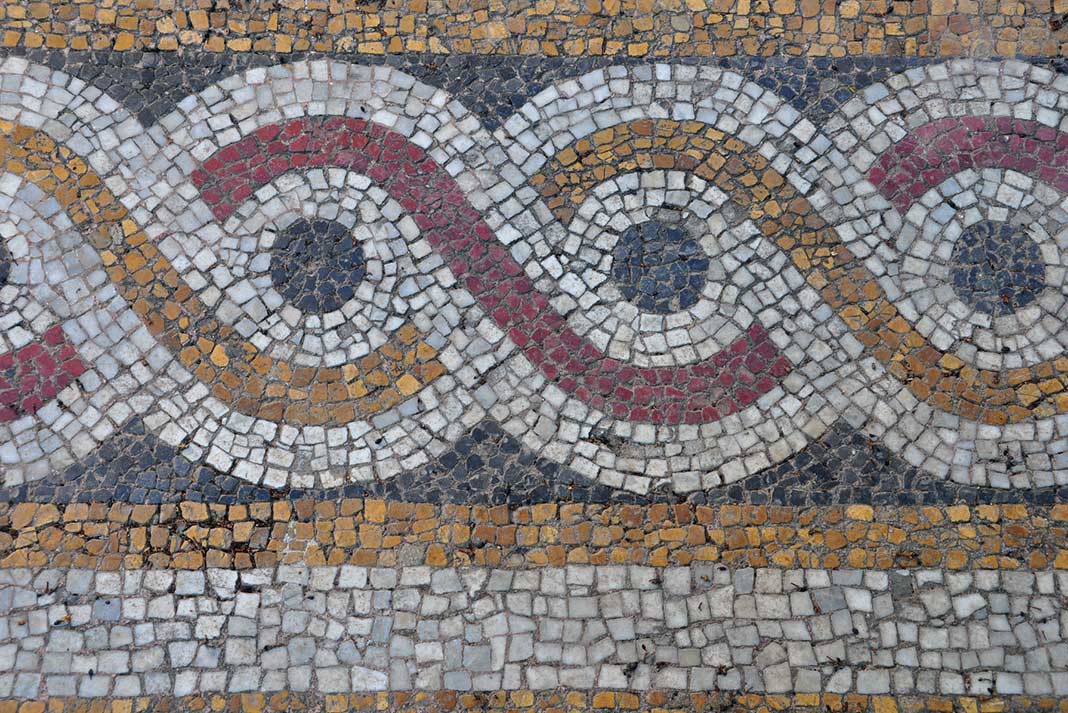
“Each person’s life is like a mandala — a vast, limitless circle. We stand in the center of our own circle, and everything we see, hear and think forms the mandala of our life.” — Pema Chodron
Signs and symbols have meaning for all of us, and whether we recognize them or not, they are an important element in our lives. My work revolves around a common symbol, the mandala, a symbol found as far back as Paleolithic times, more commonly known as the circle. The word “mandala” originates from an ancient Sanskrit word that means both circle and center.
Carl Jung used the mandala of astrology as a means of self-awareness and personal growth. He said, “I knew that in finding the mandala as an expression of the self, I had attained what was for me the ultimate.”
A day does not go by without seeing circles. Circles are in and around us. We talk about circles; we have circles of friends; we make reference to the circle of life. Have you ever felt like you were in a vicious circle? Notice how a stone thrown in water sends a symmetrical circular pattern? Even large stones can be found patterned in circles at places like Stonehenge.
The circle can be seen in art as a halo, we wear the circle as a ring, and it is often used in architectural design. We have the wheel that gets us where we want to go, CDs and DVDs to entertain us, and our coin money is circular…round and round we go. We see circles in nature. It is the shape of the sun, moon and stars — and we would not be here if not for a circular cell called the ovum.
The circle is a fundamental form of creation. Universally the circle is a symbol of wholeness, and throughout the ages the mandala has rolled with us as we have evolved. As different as we may be in our cultural traditions, we all connect to the circle. Buddhists create sand mandalas for ritual and meditation. Their most important mandala is the wheel of life or wheel of transformation, a guide to enlightenment.
Hindu mandalas, also called yantras, are drawn or mentally visualized by the individual for meditative purposes. Native American mandalas are used for physical and spiritual protection and denote family linkage. Christian mandalas can be found in the rose glass of cathedral windows, and are some of the most visually spectacular of the mandalas.
The Celts found the presence of the divine in all of nature and the interconnectedness of all things; their mandala motifs are representative of this belief. Celtic festivals mark the passing of the seasons and other cosmic events. The solstices are celebrated as they are a reflection of the heavens and movement of the planets — and that circles back to the mandala I work with, the astrological mandala, which is a unique representation of our individual symbolism and evolving lives. It is a tool to remind us of our “center.”
Regardless of its lineage, the mandala is an easier form of relaxation and meditation because most of us are visually inspired. Interestingly, research has shown there is an inherent focusing effect of circles. Therefore, I hope that within your sacred spaces you will include mandalas (or circles) that have meaning for you. It could be as simple as a penny on your desk inscribed with “In God We Trust,” a round stone as a reminder of the ripple effect, or a circular notepad that reminds us to take a deep breath and center before we write.
We all feel like we are running in circles at times, but instead of running, I hope you will be reminded of your all-encompassing center. In practice, it can take only a few periodic moments to open to the symbolic language of the soul.
You stand in the center of your circle and….
Every moment the Universe is showing us something if only we’re aware. Do you see the signs?









